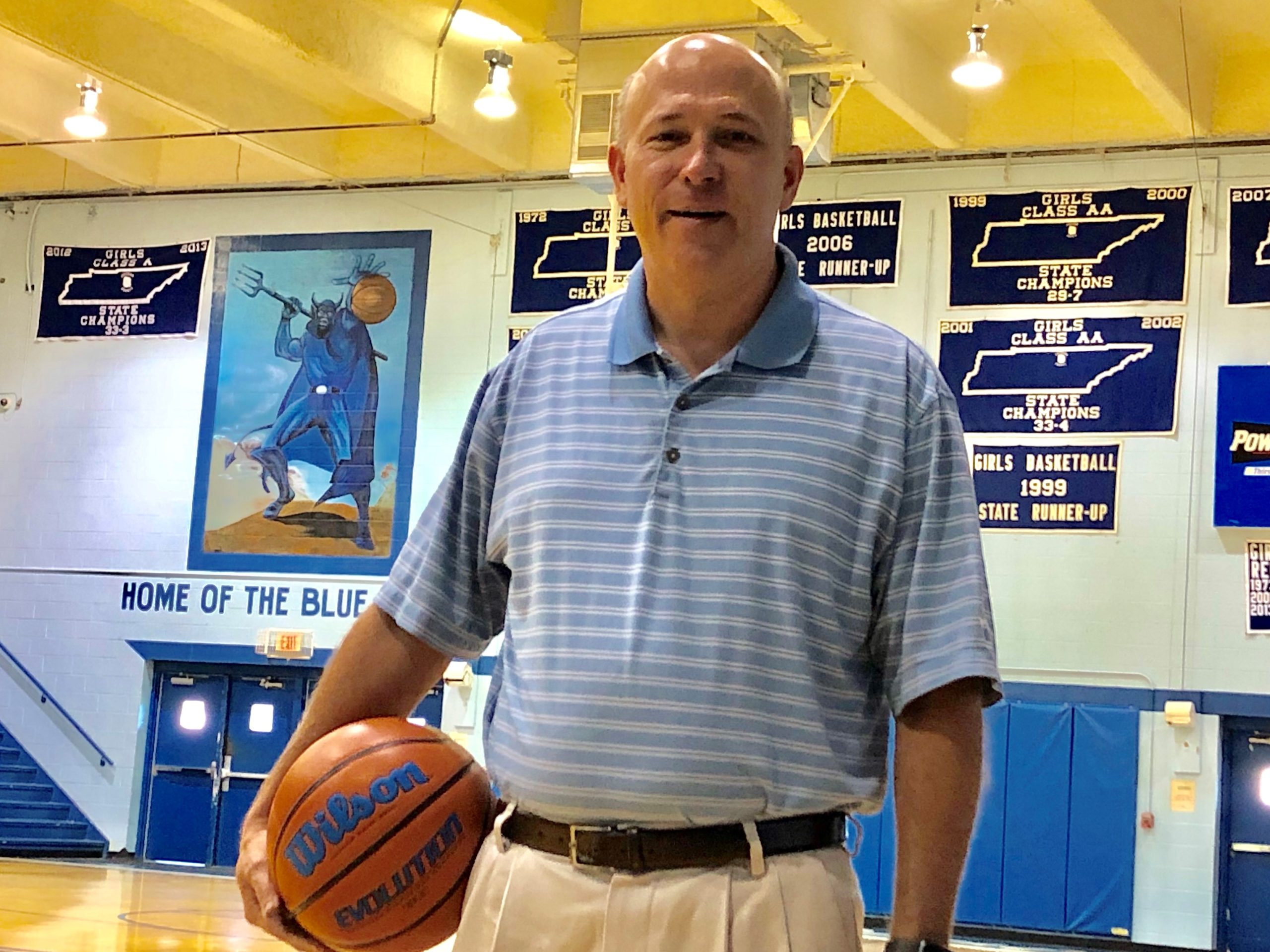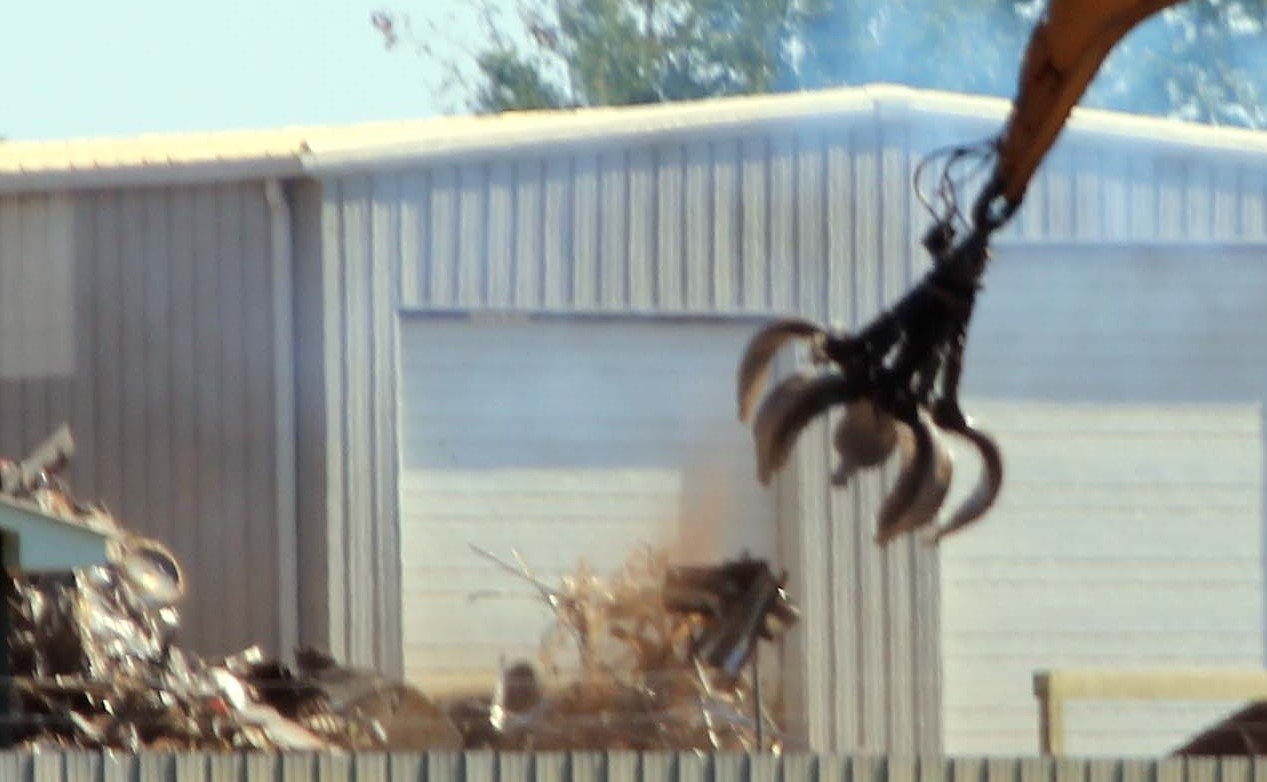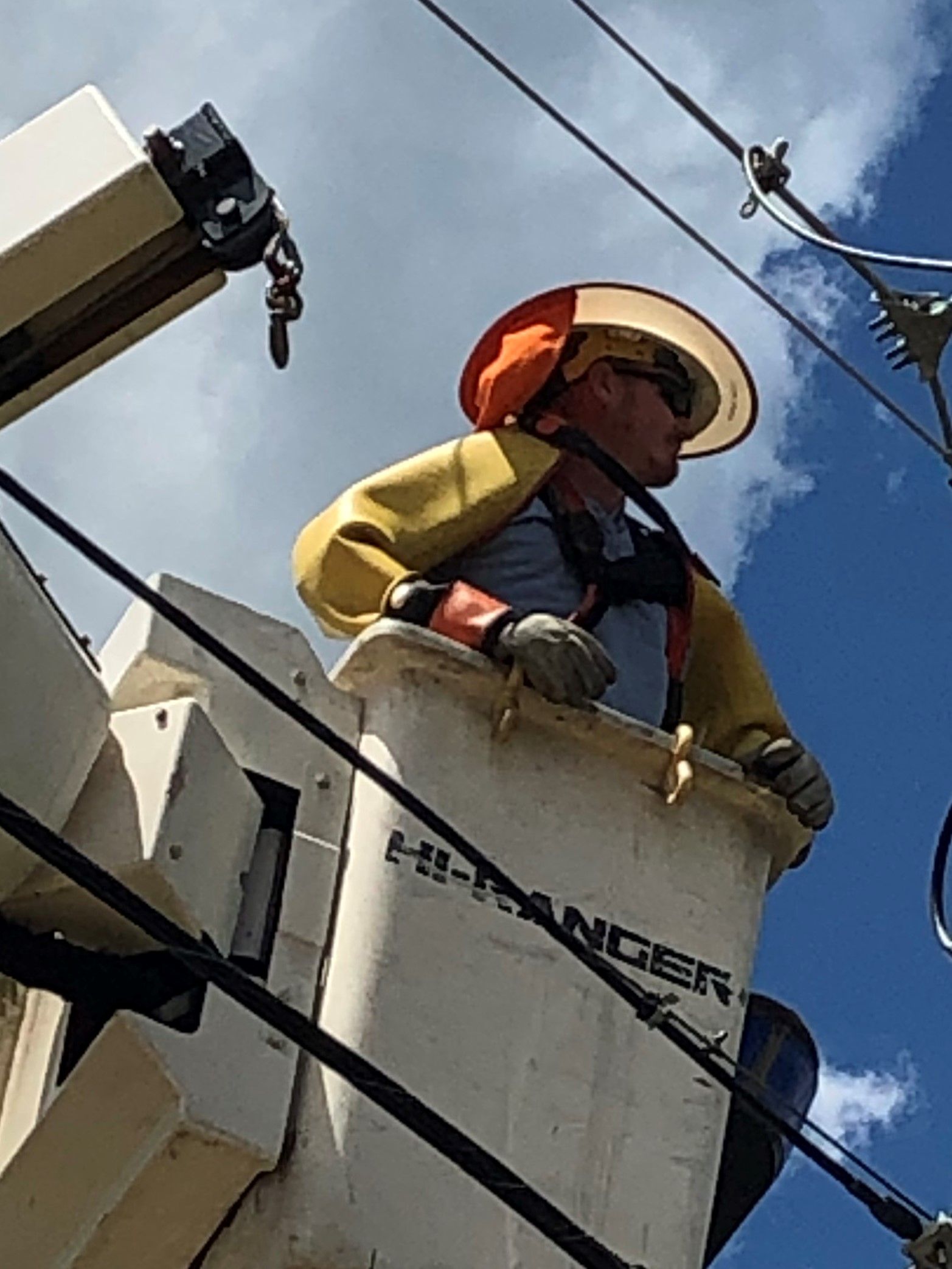When Gene Gantt’s grandfather said to him in North Carolina, ‘go over the mountain and make something of yourself,’ he took the command to heart and followed the loving edict with determination. Grandad would be proud.
For Gantt, over the mountain, turned out to be Livingston, Tennessee. Making something of himself meant becoming a successful respiratory therapist, the owner of a medical equipment company, restaurateur, restoration pioneer, and preservationist. And those are just a few of the interests on this busy man’s list. But when you ask him how his career made the transition from respiratory to restaurant, he’s the first to tell you. He has no idea.
From Iron Lung to Iron Skillet
Gantt purchased the historic building for the 1806 General Store on the Livingston square because – like any savvy entrepreneur – he saw a need and filled it. Gantt already owns several buildings here. The front window of his respiratory consulting business houses one of only 32 Iron Lungs in the country. This one was made famous by tourists who take selfies with the rare collector’s item.
[widgetkit id=”22″ name=”Before and After – Livingston”]
Perhaps it’s providence that the man who has spent his life helping people breathe is breathing new life into the town square.
The idea for a restaurant on the square came from the most basic of needs. Gantt was thirsty.
“One day, my wife Donna and I were looking for aspirin and a Coca-Cola when we were walking around the square. We couldn’t find a single place that had either,” Gantt recalls, as he sits at a table of 1806 following a particularly busy lunch hour. “That’s when we decided to do something different. We decided to put in a General Store and make it nostalgic. We got into the restaurant business at that moment. We opened last August and haven’t looked back.”
Who are Gumby and Pokey?
 Entering the 1806 General Store is stepping into a time machine. Hearing your footsteps on the old floorboards, popping your pennies in the gumball machines, and shopping the selection of vintage toys will take you back. The toys lining the original old shelves of the store are from the Baby Boomer generation, and earlier. If you were born after 1985, these games seem foreign. To those of us who spent recess with these classics, they’re like old friends: Pic-Up-Stix, Slinky, Wooly Willy, and Mr. Potato Head. Gumby and Pokey. Maybe it didn’t take that much to entertain us back in the day, but we loved these toys.
Entering the 1806 General Store is stepping into a time machine. Hearing your footsteps on the old floorboards, popping your pennies in the gumball machines, and shopping the selection of vintage toys will take you back. The toys lining the original old shelves of the store are from the Baby Boomer generation, and earlier. If you were born after 1985, these games seem foreign. To those of us who spent recess with these classics, they’re like old friends: Pic-Up-Stix, Slinky, Wooly Willy, and Mr. Potato Head. Gumby and Pokey. Maybe it didn’t take that much to entertain us back in the day, but we loved these toys.
Just Playin’
After lunch, how about a game of Jacks? The staff at the 1806 General Store can show you how to play. Gantt and his team have planned the entire store for a complete family adventure and learning experience.
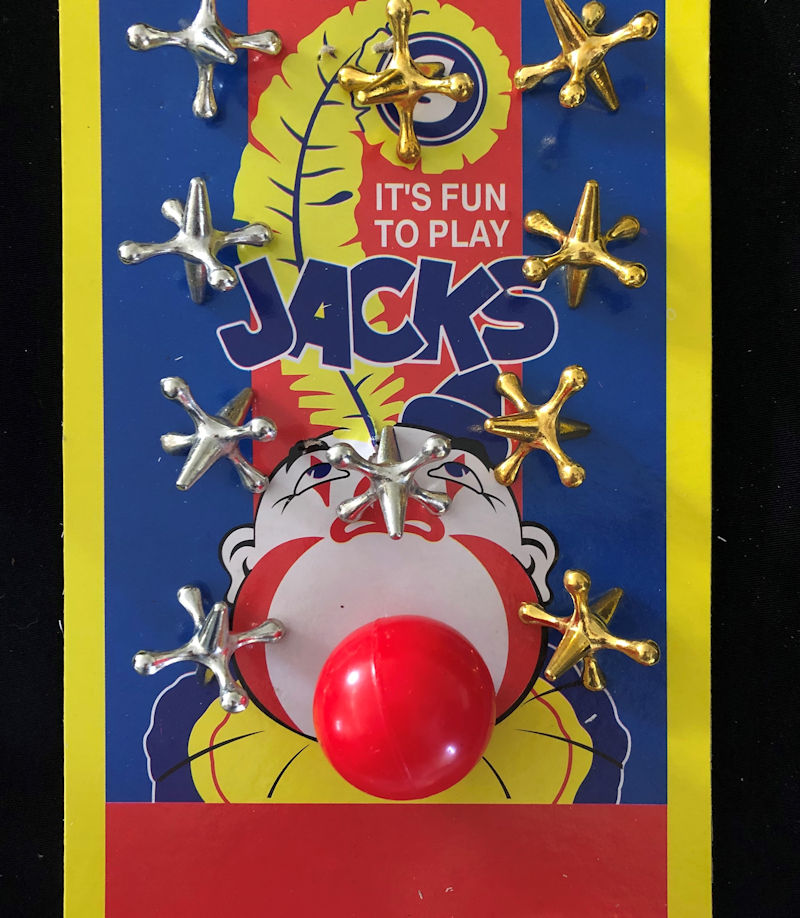
“We’ve had fun ordering the old toys on the shelves upfront. Every day I come in there is something new. The toys have become quite a tourist attraction,” Gantt says. “It was surprising to me that we’ve had youngsters to pick up a bottle opener and not know what it was. We had to teach them how it was used ‘back in the day’ before there were screw-tops.”
Confections, nuts, and other goodies are for sale by the bags full and are displayed in vintage, revolving candy jars. Loaves of bread, fresh from the bakery, line the shelves. It’s the food shopping experience our grandparents enjoyed.
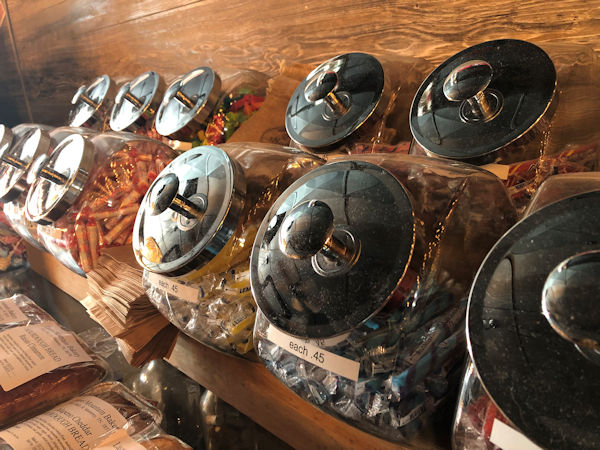 Dining in 1806 is the main event, and the restaurant offers a full menu with a salad bar, soups, and sandwiches. One of the most popular items is a staple at any general store; the bologna and cheese sandwich. All of the menu items can be served up quickly, followed by homemade pies, cakes, and cookies. The Coca-Colas are those little ones, and they’re ice-cold. And, yes, you must use a bottle opener. They’ll show you how it’s done.
Dining in 1806 is the main event, and the restaurant offers a full menu with a salad bar, soups, and sandwiches. One of the most popular items is a staple at any general store; the bologna and cheese sandwich. All of the menu items can be served up quickly, followed by homemade pies, cakes, and cookies. The Coca-Colas are those little ones, and they’re ice-cold. And, yes, you must use a bottle opener. They’ll show you how it’s done.
The Kennedy and Lincoln Dining Halls
 Large groups and club meetings have room to spread out in spacious back dining halls. Gantt is bringing some of his favorite historical collections from home for history buffs for this private section of the hyper-local museum. These rooms will be opened and ready to receive family gatherings in the next few weeks. All the while, Gantt never stops dreaming of another project.
Large groups and club meetings have room to spread out in spacious back dining halls. Gantt is bringing some of his favorite historical collections from home for history buffs for this private section of the hyper-local museum. These rooms will be opened and ready to receive family gatherings in the next few weeks. All the while, Gantt never stops dreaming of another project.
“Our next step: we have two rooms in the back. One is being converted into the Lincoln Room dedicated to Abraham Lincoln, our nation’s 16th president,” Gantt tells of his plans as he walks down the corridor. “Here, we’ll have memorabilia, photos, civil war mementos, letters, and things of that nature. The other room is dedicated to John F. Kennedy. It’ll have more of a 60s vibe and reflects the history of his presidency. It’s a dream of mine, and it’s certainly a fulfillment of my wife’s dream to get a lot of these collections out of our house,” Gantt says with a laugh. “We’re eager to get it here where it can be displayed and enjoyed by the public.”
Stress-Free Holidays
“We’re seeing a lot of new businesses opening,” Gantt adds. If you don’t have a lot of time, you can come to the square, park stress-free, get a baby gift, a Christmas gift, and now, you can have lunch. There is so much going on. Christmas in the Country is coming up, and we’re currently looking at having reservation-only candlelight dinners for couples around Valentine’s Day.”
JUST IN TIME FOR THE HOLIDAYS:
Christmas in the Country on the Livingston Square
November 29, December 6, and December 13th.
Hours: 5p-8p.
Food, carriage rides, and kids can visit with Santa!




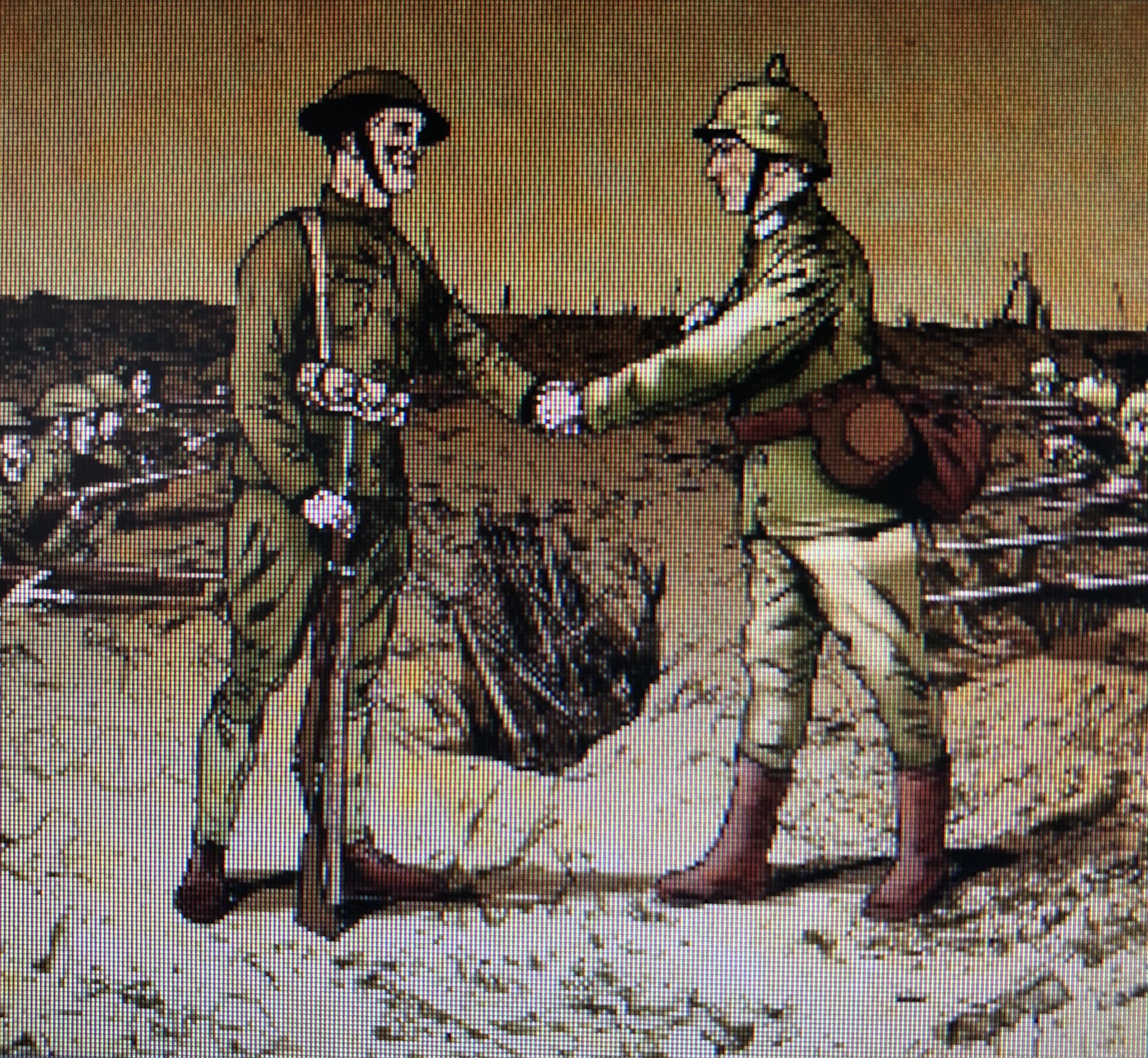

 Entering the 1806 General Store is stepping into a time machine. Hearing your footsteps on the old floorboards, popping your pennies in the gumball machines, and shopping the selection of vintage toys will take you back. The toys lining the original old shelves of the store are from the Baby Boomer generation, and earlier. If you were born after 1985, these games seem foreign. To those of us who spent recess with these classics, they’re like old friends: Pic-Up-Stix, Slinky, Wooly Willy, and Mr. Potato Head. Gumby and Pokey. Maybe it didn’t take that much to entertain us back in the day, but we loved these toys.
Entering the 1806 General Store is stepping into a time machine. Hearing your footsteps on the old floorboards, popping your pennies in the gumball machines, and shopping the selection of vintage toys will take you back. The toys lining the original old shelves of the store are from the Baby Boomer generation, and earlier. If you were born after 1985, these games seem foreign. To those of us who spent recess with these classics, they’re like old friends: Pic-Up-Stix, Slinky, Wooly Willy, and Mr. Potato Head. Gumby and Pokey. Maybe it didn’t take that much to entertain us back in the day, but we loved these toys. 
 Dining in 1806 is the main event, and the restaurant offers a full menu with a salad bar, soups, and sandwiches. One of the most popular items is a staple at any general store; the bologna and cheese sandwich. All of the menu items can be served up quickly, followed by homemade pies, cakes, and cookies. The Coca-Colas are those little ones, and they’re ice-cold. And, yes, you must use a bottle opener. They’ll show you how it’s done.
Dining in 1806 is the main event, and the restaurant offers a full menu with a salad bar, soups, and sandwiches. One of the most popular items is a staple at any general store; the bologna and cheese sandwich. All of the menu items can be served up quickly, followed by homemade pies, cakes, and cookies. The Coca-Colas are those little ones, and they’re ice-cold. And, yes, you must use a bottle opener. They’ll show you how it’s done. Large groups and club meetings have room to spread out in spacious back dining halls. Gantt is bringing some of his favorite historical collections from home for history buffs for this private section of the hyper-local museum. These rooms will be opened and ready to receive family gatherings in the next few weeks. All the while, Gantt never stops dreaming of another project.
Large groups and club meetings have room to spread out in spacious back dining halls. Gantt is bringing some of his favorite historical collections from home for history buffs for this private section of the hyper-local museum. These rooms will be opened and ready to receive family gatherings in the next few weeks. All the while, Gantt never stops dreaming of another project.
